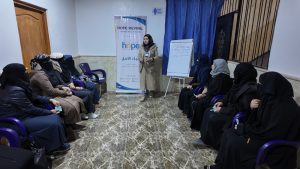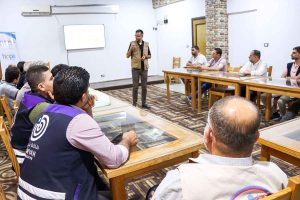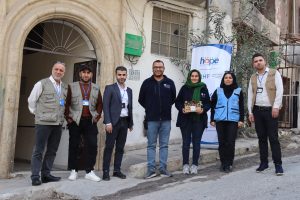Kherbet Eljoz MHPSS Stand-Alone Clinic
In its commitment to mitigating the adverse impacts on the mental health and well-being of war-affected Syrian populations, Hope Revival Organization (HRO) strives to enhance access to comprehensive Mental Health and Psychosocial Support (MHPSS) services in Kherbet Eljoz.
The clinic, a pivotal component of this initiative, is dedicated to ensuring the sustained provision of long-term, specialized, and targeted MHPSS services in densely populated and critically underserved areas, housing both Internally Displaced People (IDPs) and new arrivals in Northwest Syria, particularly in the Idleb Governorate. The clinic employs a combination of fixed MHPSS and mobile clinics to effectively reach communities in need. At present, the MHPSS stand-alone clinic delivers consultations, including psychotropic treatments, for the war-affected populations in the area. The clinic's staff comprises a part-time Resident Psychiatrist, one Psychologist, and three full-time Psychosocial Workers (PSWs), representing both genders.
Interventions focus on moderate to severe psychological conditions affecting diverse demographics from children to women to individuals with disabilities. Common issues addressed include depression, stress, grief, anger, and more. These challenges often stem from prolonged crises, frequent displacements, and the erosion of institutional systems such as health, education, and social networks over recent years.
War-affected people gain access to psychotropics by trained doctors, non-pharmacological psychotherapy, cognitive behavioral therapy, eye movement desensitization and reprocessing, consultation through PM+, psychological first aid (PFA), psycho-education, identification and referral to specialized and non-specialized services based on case management approaches, and awareness-raising sessions on MHPSS key topics and messages.




